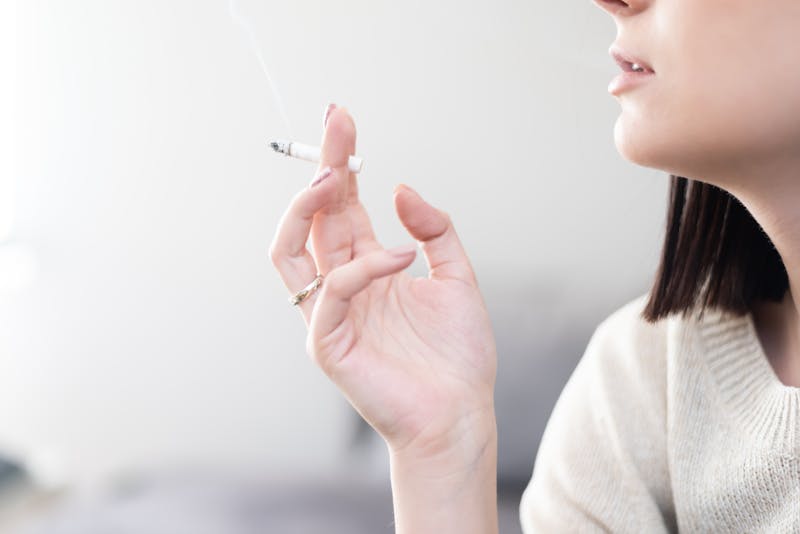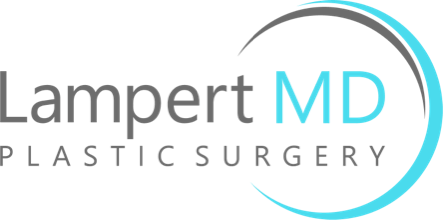
Today, we’re going over the hemoglobin molecule and specifically smoking around the time of surgery.
No plastic surgeon wants their patient to smoke before surgery. I would like you to stop at least a month before surgery. One of the big reasons for this comes at the level of chemistry.
The hemoglobin molecule binds oxygen and helps our red blood cells take oxygen to human tissues and take carbon dioxide and get it out of the body. That’s really the main role of hemoglobin that we understand in our body. One of the problems with smoking anything, whether it’s marijuana smoke or cigarette smoke, is carbon monoxide. That is, in any smoke and even in a fire, if you are exposed to that. That carbon monoxide molecule binds irreversibly to the hemoglobin molecule, and it blocks the ability of the hemoglobin molecule to deliver oxygen to healing tissue. It basically knocks the hemoglobin molecule out of commission, which is why we hate smoking before surgery.
It takes, honestly, probably three months to recycle the red blood cells and the hemoglobin. So if you’re smoking three months before surgery, it can impair and affect your surgery for sure. Studies have shown if you stop smoking one month before surgery, you get a little bit closer to normal wound healing. That’s why we usually say at least a month. Any surgery has a risk of complications with smoking, specifically breast.
What are the risks?
Well, capsular contracture if you have breast implants, studies have shown significantly higher rates of capsular contracture in patients who smoke. The one thing that we’re all afraid of, that’s in every consent form from the American Society of Plastic Surgery, is a patient could lose a nipple with breast surgery. It’s a higher risk in patients who have had multiple breast surgeries, and it’s a higher risk when you’re doing a lift and placing a breast implant. To date, I’ve never lost a nipple on a patient, but it’s something we’re always concerned about. Especially if the patient had a lot of surgery before and if the patient has a smoking history.
I personally will not perform a breast lift on a patient who hasn’t quit smoking and using nicotine products for at least a month prior to surgery.
One of the reasons is that the nipple has a blood supply that we know about, and that blood supply is really important to keep that nipple alive. But with surgery, especially if they’ve had multiple breast surgeries in the past, a lot of that blood supply to the nipple has been cut. So we can’t rely on as profuse of a blood supply.
Sometimes there’s just a couple of these larger major vessels that are keeping this nipple alive. If the patients had prior breast reduction, prior breast implants, multiple prior breast surgeries, or breast reconstruction. One of the problems was specifically nicotine. Nicotine is one of the worst things to smoke. Nicotine is really bad because it causes vasoconstriction. It causes these arteries to shrink down in size, so there’s not as much of a pressure head and not as much blood flow to the area that we want to heal.
A lot of my patients smoke marijuana, and they ask me, is it okay if I smoke marijuana?
Marijuana doesn’t have nicotine, so it doesn’t cause that vasoconstriction, which is great. But I personally don’t like the smoke because smoke has carbon monoxide in it.
We don’t want to have any problems with blood supply to the wound. We don’t want bad scars. We don’t want capsular contracture. We don’t want to lose skin or have skin die because that leads to bad scarring. The happy red blood cell really helps us have more reliable results as plastic surgeons. The unhappy red blood cell can’t find oxygen as well because the hemoglobin is full of carbon monoxide. A patient that has a lot of carbon monoxide saturating their hemoglobin molecules is exposed to smoke.
Whether it’s marijuana smoke or cigarette smoke, that patient is not going to heal as well because of that unhappy red blood cell, which is really important to deliver life giving oxygen to the healing tissues.
A lot of patients ask me, what about edibles? What about the tincture?
Many patients are on medical marijuana. To be honest, I don’t have a really strong opinion on those regarding wound healing.
I think the edible forms of marijuana likely do not impact wound healing that much from at least the large evidence based studies I’ve looked for. There are no real signs of that. I do have concerns sometimes with the dosing. Patients frequently who smoke marijuana will say that edible marijuana or THC is much more potent and potentially can inebriate them significantly more.
I’m always concerned, and we can never allow a patient to come in to sign informed consent or the morning of surgery.
Let’s face it, if you’re high, the anesthesiologist and I will cancel your operation. Speaking of anesthesia, the anesthesiologists do not like when patients smoke. Those patients cough, they have lower oxygen saturation, they have a higher risk of pneumonia and lung related complications. With surgery, all the risks go up with smokers.
The other thing, too, with smokers, there’s a lot of mucus that has to be sucked up by the anesthesiologist, which is not only a risk, but also disgusting. The anesthesiologist is probably the only other doctor that wants them to quit smoking more than I do.

